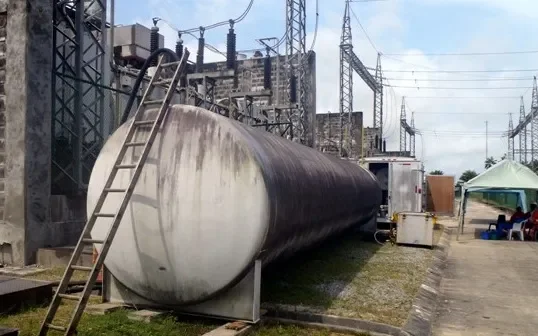Nigeria stands on the brink of an energy revolution. The government is set to revive the Aluminium Smelting Company of Nigeria (ALSCON) in Ikot Abasi, Akwa Ibom State, promising 540 megawatts of electricity for the national grid.
On October 20, 2025, Power Minister Adebayo Adelabu toured the facility, unveiling plans to transform this dormant giant into a powerhouse of progress. This bold move could light up homes, create jobs, and fuel economic growth.
Adelabu hailed ALSCON as a “national gem” sidelined for years by unreliable power. He pledged to reconnect the plant to the grid and finish a stalled 330 kV substation, sparking hope for a brighter future.
A History of Lost Potential
ALSCON’s story began in 1989, but it wasn’t until 1998 that the plant was completed. Power shortages kept it from shining, and a 2006 privatization to a Russian firm failed to deliver results. Billions in potential have been squandered, but Adelabu sees a turnaround.
“This plant can supply aluminum to local industries, save foreign exchange, and employ 15,000 Nigerians,” he said, emphasizing jobs and self-reliance.
This revival aligns with Nigeria’s goal to electrify most homes by 2030, a key pillar of the nation’s development vision.
Energizing the Grid
ALSCON boasts six 90-megawatt turbines, ready to deliver 540MW once connected via the Ikot Ekpene-to-Ikot Abasi substation and transmission lines. Adelabu hinted at a possible boost to 660MW by upgrading to a combined circuit, adding 20MW per turbine.
“This is a game-changer,” he declared, vowing to oversee the substation’s completion within 90 days.
Working with the Transmission Company of Nigeria and Niger Delta Power Holding Company, the government has crafted short- and medium-term plans to restore grid access fast. This could ease Nigeria’s persistent power shortages.
Economic Sparks Fly
ALSCON’s revival goes beyond electricity. By supplying raw materials to local aluminum firms, it will cut costly imports, saving millions in foreign currency. The plant could create thousands of jobs, especially for Nigeria’s youth.
“This is about building a stronger economy,” Adelabu stressed, highlighting the ripple effects of a thriving ALSCON.
Gas supply issues, a key hurdle, can be solved with fair pricing, he added, ensuring the plant runs smoothly.
Hurdles to Clear
Viacheslav Krylov, ALSCON’s Development Adviser, warned that stable, high-volume electricity is vital to reach the plant’s 200,000-metric-tonne production goal within six years.
“We need a reliable backup power supply and strong grid links,” he said, pushing for robust power agreements. Without these, the plant’s potential could stall.
The government’s 90-day promise to complete the substation offers hope. If met, ALSCON’s impact could hit Nigeria by early 2026, a major win for a power-hungry nation.
A Vision of Progress
ALSCON’s comeback is more than a power project it’s a symbol of Nigeria’s ambition. With 540MW, thousands of jobs, and millions in savings on the horizon, the plant could reshape the economy.
Despite challenges like policy shifts and talent loss, this initiative shines bright. As Adelabu drives forward, Nigeria awaits a future where energy powers opportunity and growth.
READ MORE: Teen Stuns Nigeria from VP’s Seat, Demands Girls’ Rights




















